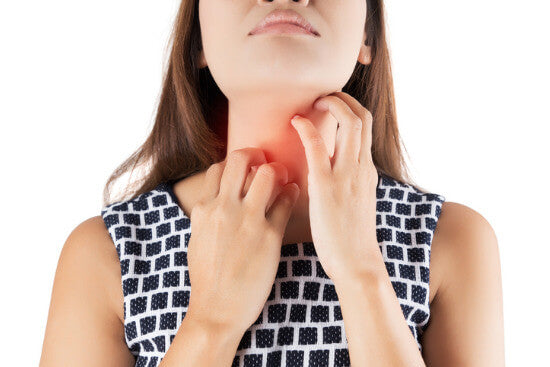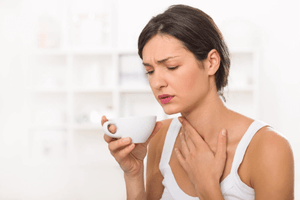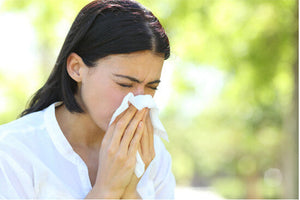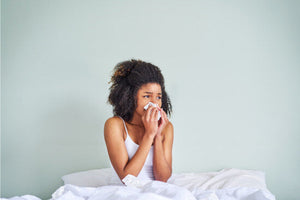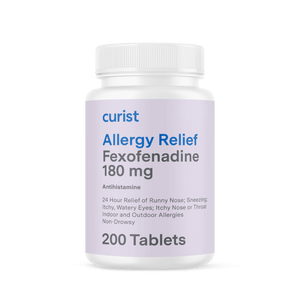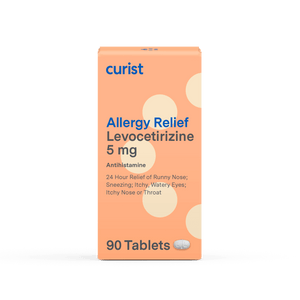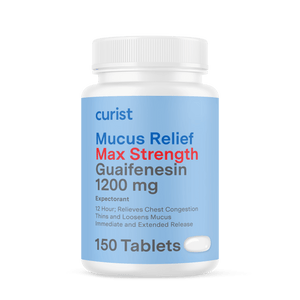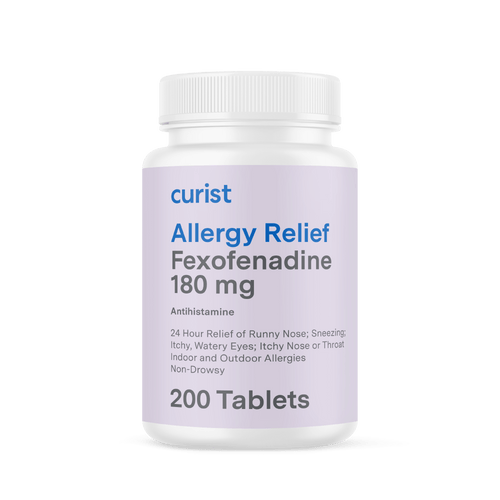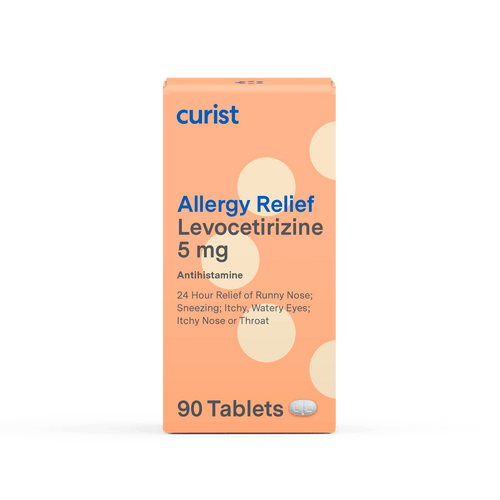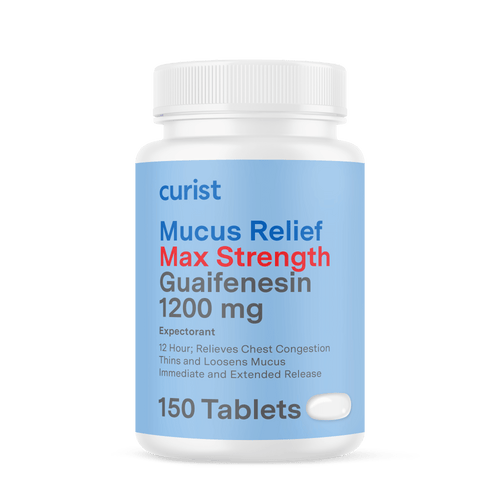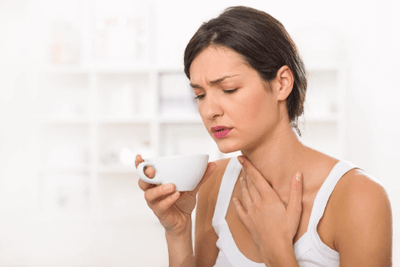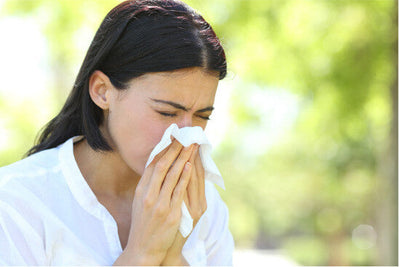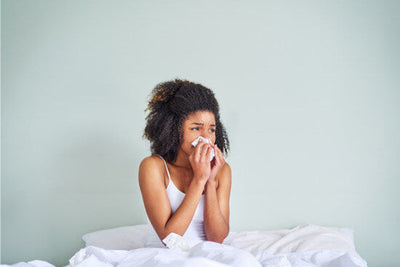COVID-19 Symptoms | Itchy Throat: Allergies or COVID-19 | Sore Throat | Best Allergy Medicine for Itchy Throat
By Dr. Faith Goan, PharmD, and Dr. Marc Goldstein, MD, Curist Medical Advisor
Curist delivers over-the-counter medicines to your door at a fraction of the price of traditional brands. We hope everyone stays safe and healthy during this time.
Common Symptoms of Coronavirus (COVID-19): Itchy Throat vs. Sore Throat
The Centers for Disease Control and Prevention (CDC) have stated that most people will experience mild illness from coronavirus (COVID-19) and should be able to recover in isolation at home. However, with COVID-19 cases continuing to spread, many people are struggling to distinguish between symptoms potentially caused by coronavirus versus other conditions. One of the most commonly searched symptoms is itchy throat, and the post below will analyze itchy throat symptoms so that you can make a more informed guess as to what symptoms you are experiencing and understand the signs of coronavirus (COVID-19).
According to the CDC, the most severe symptoms of coronavirus (COVID-19) are the following:
- Fever (100.4 degrees Fahrenheit or higher)
- Shortness of breath
- Dry cough (No mucus coming up)
Other coronavirus symptoms can overlap with flu-like symptoms, such as:
- Sore Throat
- Fatigue (tiredness)
- Body or muscle aches
- Nasal congestion or runny nose
Or include other symptoms like:
- New loss of taste or smell
- Sore throat
- Nausea or vomiting
- Diarrhea
Itchy throat is not typically identified as a symptom of coronavirus. Although an itchy throat has not been called out as a coronavirus symptom, how can you determine if that discomfort in your throat is a sore throat caused by coronavirus versus an itchy throat with a less alarming cause?
Why Is My Throat Itchy: COVID or Allergies?
One of the main causes of an itchy throat is from allergies. Allergens, such as spring tree and grass pollen, can trigger symptoms in the throat particularly an “itchy” sensation or a tickle in your throat. If you find yourself rubbing your tongue against the roof of your mouth to get at your itch (often making a “clucking” sound), that’s typically an allergy-related itchy throat or itchy back of your throat. This is often associated with other symptoms from allergies, like itchy eyes, watery eyes, itchy mouth, itchy nose (learn more: Itchy Nose vs COVID), runny nose (learn more: Runny Nose vs COVID), and sneezing (learn more: Sneezing vs COVID). However, though it is a symptom of allergies, itchy throat is not a COVID symptom.
Sore Throat vs Itchy Throat: Allergies or Coronavirus (COVID-19)?
The difference compared to an itchy throat, a sore throat from a viral or bacterial infection can cause you to feel pain, scratchiness or irritation in the throat. Sore throats are usually accompanied with a fever (especially in the case of coronavirus) and can cause one to feel pain in the throat or throat irritation with or without swallowing, though people typically feel the soreness when they do swallow. In contrast versus a sore throat, an itchy throat from allergies are typically always present, not just when swallowing.
Another difference between sore throat vs itchy throat, is that people with allergies will experience mucus in the back of your throat from post-nasal drip. With that mucus buildup, people often try to clear their throat. In contrast, people with sore throats often do not try to clear their throat as it causes more pain.
To learn more about these other throat symptoms like sore throat and scratchy throat, check out:
What If I Can’t Tell Whether I Have Itchy Throat vs Sore Throat and Am Concerned About Coronavirus?
For itchy throats caused by allergies, antihistamines relieve itchy throats and are widely available without a prescription, like Curist Allergy Relief. If you are experiencing a mildly itchy throat that typically would not merit a doctor visit, an easy way to give yourself peace of mind is to try an antihistamine for a couple days and keep a log of your symptoms. Allergy sufferers will typically begin to experience some symptom relief from antihistamines usually within 24 hours.
Pay attention to your other symptoms. If you have other symptoms often associated with coronavirus, especially fever, then it’s unlikely your symptoms are just from allergies.
To learn more about allergies versus coronavirus in general, click here.
What is the Best Allergy Medicine for Itchy Throat?
You may be wondering what the best medicine is for your itchy throat. Allergy medicines like antihistamines are great at relieving itchy throats, and even can help with itchy mouth or itchy roof of mouth. Antihistamines work by preventing inflammation within the throat, as well as drying post-nasal drip discussed above. Everyone’s body responds differently to different antihistamines, but here are some of the most popular allergy medicines for itchy throat:
- Curist Allergy Relief (levocetirizine)
- Curist Allergy Relief (fexofenadine)
- Zyrtec (cetirizine)
-
Claritin (loratadine)
Big brand name allergy medications can cost a lot of money, but check out Curist to relieve some of that stress on your wallet!
What About Drug-Free Relief of My Itchy Throat?
There are a few natural remedies that may help with an itchy throat, including:
- Hot tea with honey
- Warm salt-water gargle
- Hydration
Please note that these are not treatments or cures to coronavirus or allergies, but may help alleviate your itchy throat symptoms.
How Can I Protect Myself and Others From Coronavirus (COVID-19)?
Although some people may not be experiencing symptoms of COVID, it is important that we all practice the following precautions:
- Wash your hands with water and soap for at least 20 seconds. If soap is not available, you can use hand sanitizer with at least 60% alcohol.
- COVID-19 can be spread through droplets that travel through the air each time a person coughs or sneezes, so it is important to practice social distancing (6 feet) and wear a mask.
- Refrain from touching your eyes, mouth and nose. Even if you’ve washed your hands, make it a habit not to touch your face. Try wearing a mask to prevent you from touching your mouth and nose directly.
- Allergies can cause you to rub your eyes and nose unwittingly, and this could increase the spread of coronavirus.
- Learn more in our article Coronavirus vs Allergies by Curist medical advisor Dr. Marc Goldstein.
- Clean and disinfect frequently touched surfaces, like door and cabinet handles, kitchen counters, cell phones, and credit cards.
- Learn more in our article Cleaning vs Disinfecting: Coronavirus Edition
- Get a COVID-19 vaccination, and a booster if you are eligible. If you are concerned about receiving the COVID-19 vaccine because of underlying allergies, please check out: Allergies & the COVID-19 Vaccine.
For more information about coronavirus, please visit the CDC website. As always, if you are not feeling well, please reach out to your medical provider or call 911.
